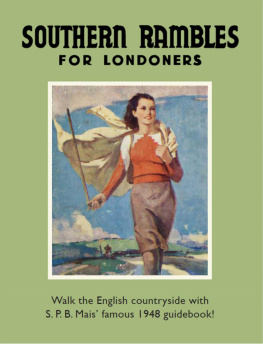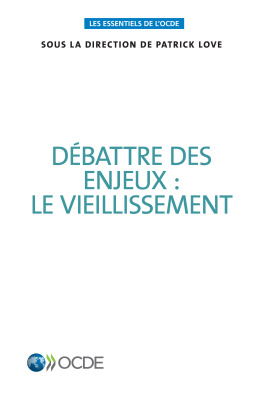INTRODUCTION
Table of Contents
From reviews that I have read of earlier books of mine I have at last learnt wisdom. It seems that I must be explicit about my intentions in a preface in order to save the critics the trouble of reading the book through.
Now it must be remembered that literary critics are men of intelligence who have read everything and damned most things. Very few indeed are the books which they allow to be worth the trouble that must have been taken to write them.
And it is certainly true that we suffer from a flood of reading matter which serves no more purpose than a packet of the cheapest cigarettes or a cocktail.
We have not troubled to acquire a critical sense. We accept what we see on the bookstalls and buy books almost entirely from the attractiveness of their wrappers. But there ought to be a mean between a ferocious disdain of all modern writing and a surfeiting on all that is published. The majority of men and women are very much like myself, I imagine. They read with equal interest a modern novel, say, of Sheila Kaye-Smith, an exposition of the Relativity Theory like Eddington's Space, Time and Gravitation, E. V. Lucas's essays, Henri Fabre and Trotter, and at the same time keep harking back to reread Don Quixote, Tristram Shandy, Shelley and other favourites among the classics.
Even so, they are apt to miss much that is readable and from my correspondence I gather that I have many times been lucky enough to introduce an author to a new reader, as a result of which an undying friendship between the two has been caused.
Merely to turn over the following pages will not give the critic any clue why I chose the writers and books that I have chosen.
In point of fact, it just happens that these are the people who have attracted me sufficiently in my reading during the last year to jot down not so much why I found them attractive as what I found attractive in them.
It is quite by chance that there should be almost an equal number of foreigners, contemporaries and native classics in my list. I suppose it means that I devote about one-third of my reading hours to each.
With regard to my method of approach, it is no good reviling me for not criticising each book or author according to a stereotyped plan, as if I were a chemist analysing a compound. I am not analysing so much as enjoying. My position is that of the not altogether successful cricketer who yet takes a keen delight in watching great players bat. I do not propose to sit down and lay emphasis on the chances given or the faulty strokes: my object is rather to take as many enthusiasts of the game with me as I can find and just lie down and watch an innings which I know to be a good one.
To call this "gush" or "gusto," as some of my reviewers do, is merely silly. I am not so mentally deficient as they would have people to believe.
Merely to "slobber" over a book or a person is not one of my characteristics. It is extremely easy to pick holes, to adopt a negative attitude, to call down fire from heaven and make a show with the fists when your enemy is merely an author. That is not my idea of honourable action. If a book is bad (and I agree that most books are), let it die by itself. Professional critics only too frequently remind me of vultures: they crowd round the weak and the dying ready to devour.
The object of any man who enjoys life is to share his enjoyment with others. If a book appeals to me I want as many people as possible to derive the pleasure that I derived from it.
I would have my critics remember that this is not a book on "Why we should not Read" (which would have been very easy to write), and therefore is meant to be laudatory. I do demand sincerity in my authors and at any rate a feeling for beauty. Knowing full well as a novelist myself how extremely hard these desiderata are to be obtained, I am perhaps more lenient than some critics who have never tackled a creative task, just as I am less inclined to decry another man's strokes at cricket when I think of my own feeble efforts, but it is very definitely worth pointing out that the severest critics of any sport are always those who know nothing about it, and I am beginning to believe that these modern critics who find no good in any work which comes under their notice know nothing whatever about literature, but, like the audiences at a Cup-tie, talk a wonderful jargon which is apt to deceive all but the elect.
I feel that I have wasted too much time on the critics. They don't really count for anything on either side.
To you for whom I have written this book there is perhaps just this to say. Don't begin by looking for fresh light on authors that you already know. My sole object is to introduce you to authors that you don't yet know. This introduction was not written for you. You can leave it out. The introduction was written for the critics, the book for you, and the proportion of pages devoted to them set against the pages devoted to you will give you an accurate idea of the proportion of favour that I want, yours and the critics'.
Five of the shortest chapters in this book have been already published, one in To-Day, the others in John o' London's Weekly; to the editors of these journals I am indebted for permission to reprint.
[Pg 12]
[Pg 13]
I
TOM JONES
Table of Contents
I suppose there is still somebody living who has not read Tom Jones: it seems inconceivable that it should be so, but queer things of this sort do happen. Only the other day I met a man who had never seen any Gilbert and Sullivan comic opera. To say that Fielding possessed more wit and humour and more knowledge of mankind than any other person of modern times, except Shakespeare, ought to be sufficient to drive anyone ignorant of his work at once to the nearest bookshop. "Since the days of Homer," says one great critic, "the world has not seen a more artful fable [than Tom Jones]. The characters and adventures are wonderfully diversified; yet the circumstances are all so natural, and rise so easily from one another, and co-operate with so much regularity in bringing on, even while they seem to retard, the catastrophe, that the curiosity of the reader is kept always awake, and instead of flagging, grows more and more impatient as the story advances, till at last it becomes downright anxiety. And when we get to the end, and look back on the whole contrivance, we are amazed to find that of so many incidents there should be so few superfluous; that in such variety of fiction there should be so great probability, and that so complete a tale should be so perspicuously conducted and with perfect unity of design."
We read and reread Tom Jones in order to recapture some of that first careless rapture which is so refreshing a point in Fielding's fiction, to get away from the weary, meticulous self-analysis of the modern novelist, to the full-blooded, honest attitude of the country-bred Englishman of the eighteenth century. Here we have a tale told for the sake of narrative, with incidents, the interest in which never for a moment flags, characters all lively, true and fresh, dialogue full of point, variety and suitability. It is a test of our interest that we feel angry at the constant digressions and interruptions, but who would do without those masterly initial chapters in each book?








